Add Lightness: The Lightest Cars from the Last 10 Years

Contents
Introduction
Cars have grown heavier and heavier over the years. That’s because they offer more features and equipment than ever before. They’re also sturdier and safer. But all that weight comes at a cost, sapping both efficiency and handling. It also means more wear and tear on some expensive components, such as tires and brakes.
That’s why we thought it would be interesting to look at some of the lightest cars available from the last decade. Our list highlights the three lightest models in each of the following categories: subcompact cars, sports cars, compact cars, midsize sedans, and large sedans. Each of these models has evolved into the modern age while keeping extra pounds to a minimum.
We partnered with Ivan Drury from the Industry Insights team at Edmunds to ensure we got the data right. He provided us with each model’s average curb weight across all trims and variants. Note that we’ve focused solely on widely available models, so exotic and limited-production vehicles are excluded.
The vehicles on our list come in all shapes and sizes, but each is a testament to Colin Chapman’s famous adage, “Add lightness.”
The List
Subcompact Cars
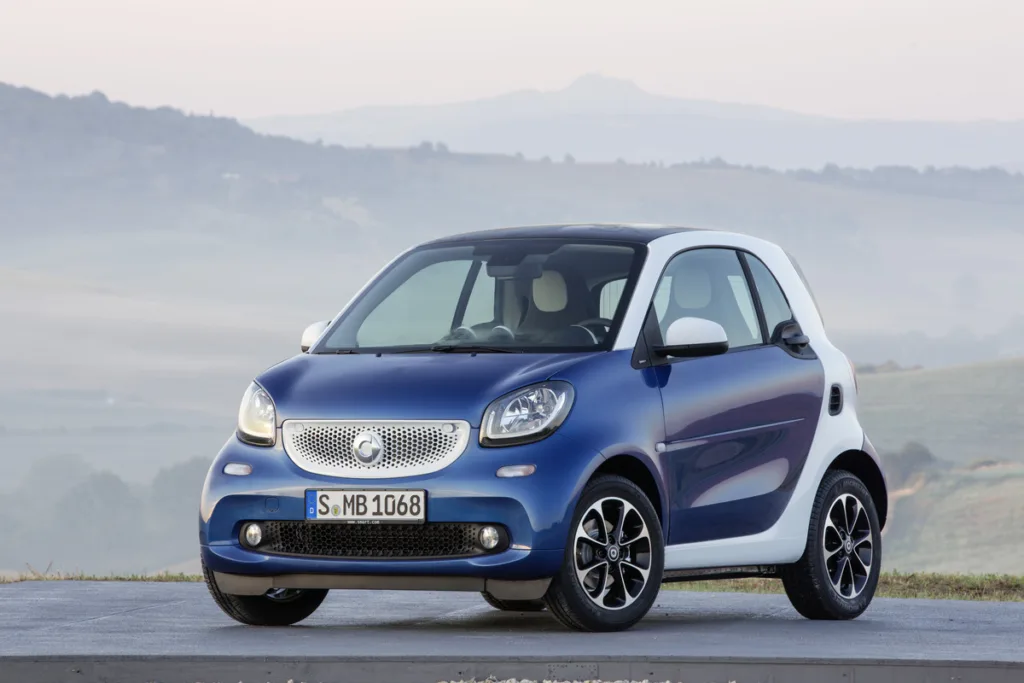
Smart Fortwo
- 1,823 lbs
The teensy Fortwo is a masterclass in urban practicality. It zips through congested streets with ease and makes quick work of tight parking spaces. However, its modest power and size keep it from being useful as anything other than a city runabout.

Mitsubishi Mirage
- 2,069 lbs
The Mirage excels in fuel economy and easy handling, a testament to its lean design. While it may not be the most dynamic performer, its featherweight status is ideal for economical city driving. It even boasts a usable back seat.
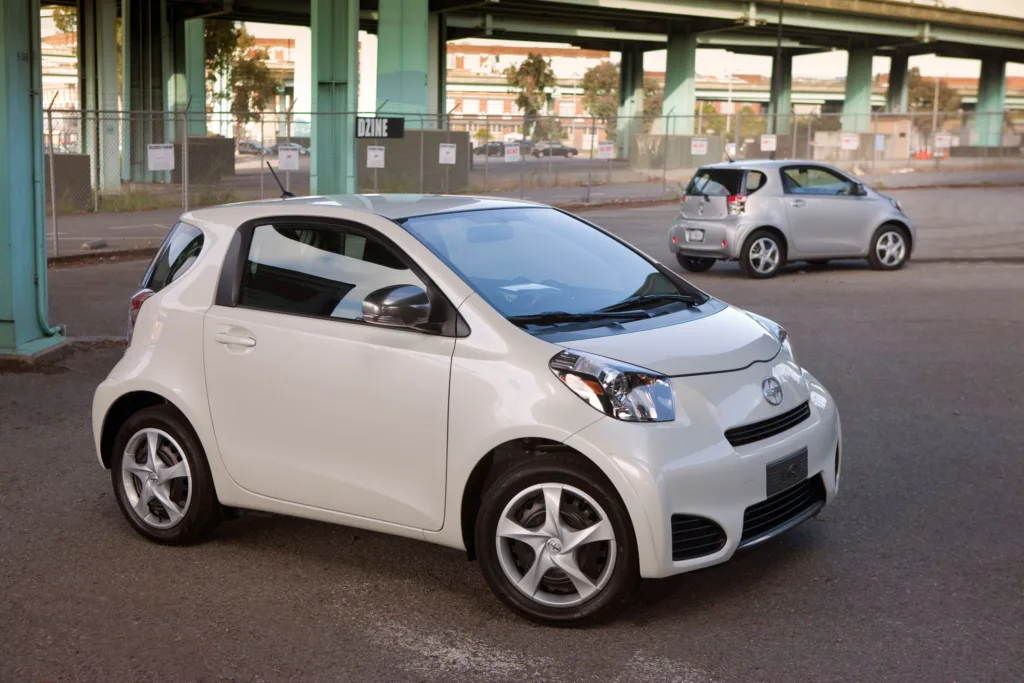
Scion iQ
- 2,127 lbs
The iQ offers a distinctive solution for city driving with its ultra-compact design and innovative three-plus-one seating. It’s a smart pick for urban commuters, but its lack of power and space make it impractical for longer trips.
Sports Cars
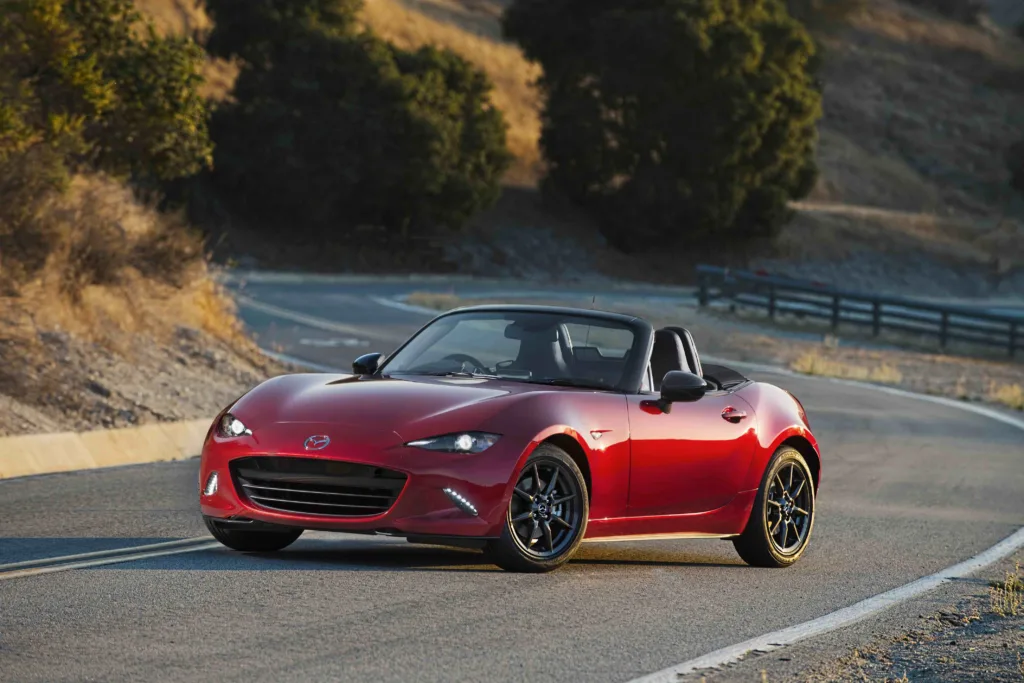
Mazda MX-5 Miata / Fiat 124 Spider
- 2,357 lbs
The MX-5 Miata and its Italian cousin, the 124 Spider, epitomize the lightweight roadster. After all, the first-gen Miata is essentially a modern version of the Lotus Elan, one of Colin Chapman’s most celebrated models. Their lively handling and responsive steering make them both a joy on winding roads. But what these two-seaters offer in driving fun, they lack in practicality.
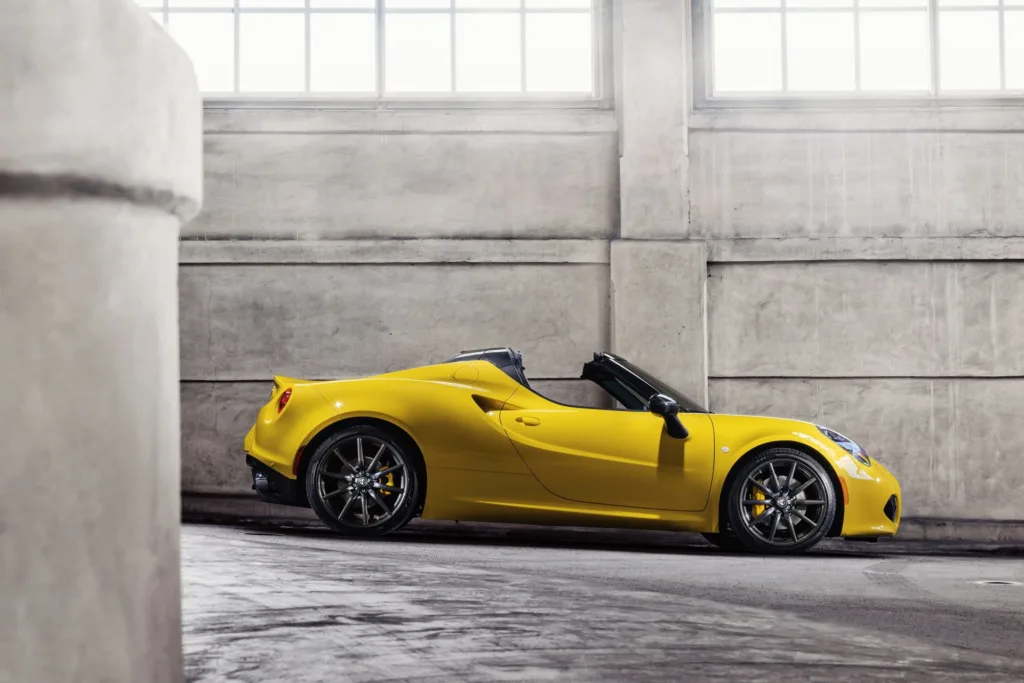
Alfa Romeo 4C
- 2,465 lbs
The 4C is a marvel of lightweight engineering. Featuring a carbon fiber chassis and a mid-engine layout, the feisty Alfa appeals to those seeking an exotic and thrilling ride. However, its noisy, cramped cabin and lack of storage mean comfort and utility take a back seat.
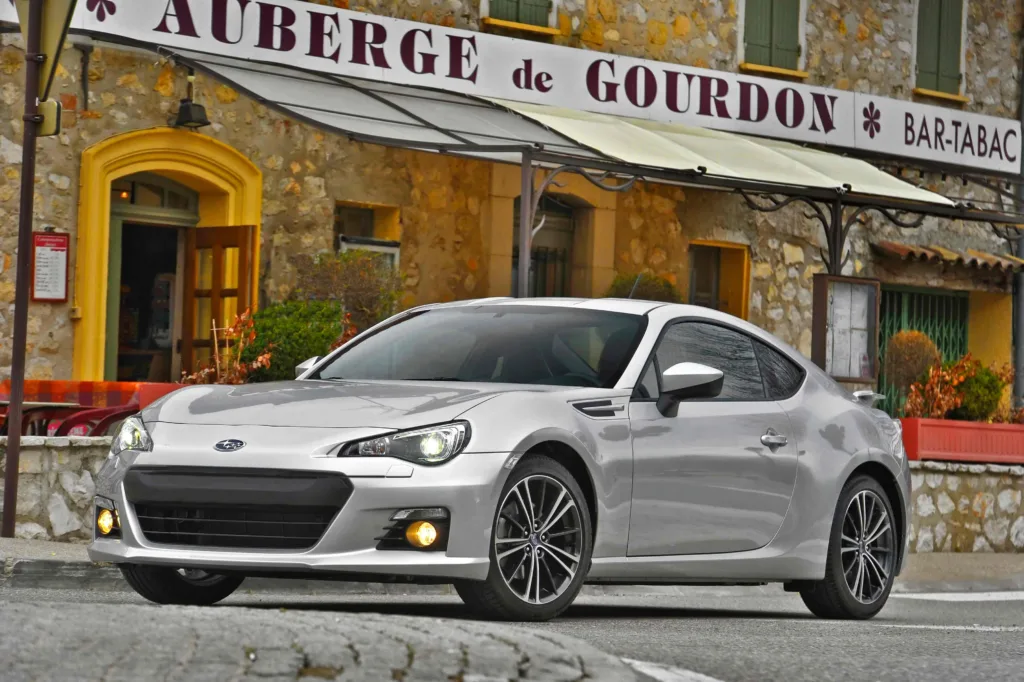
Subaru BRZ / Toyota 86
- 2,789 lbs
The BRZ and 86 twins are all about pure driving pleasure. Their lightweight, rear-drive configuration delivers a balanced and engaging feel, especially when combined with the available manual gearbox. While they might not win any drag races, their handling prowess in the twisties more than makes up for it.
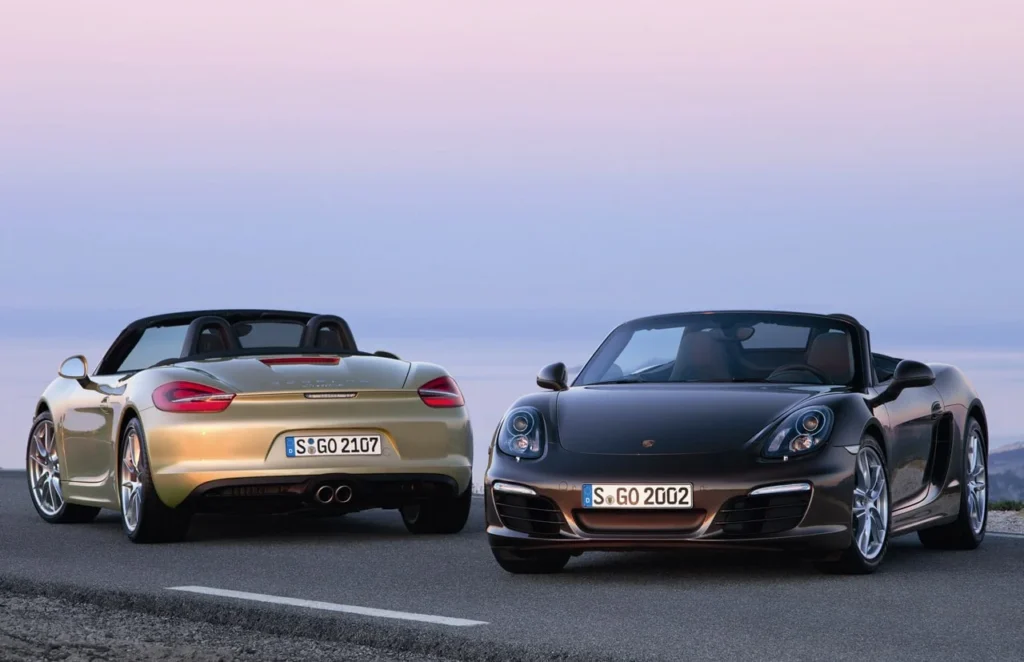
Honorable Mention: Porsche Boxster
- 2,897 lbs
Though it’s not exactly a featherweight, the Boxster remains a sports car benchmark, balancing elemental performance with style and a hint of luxury. Known for its near-perfect weight distribution, the mid-engined Porsche provides more space and amenities than many rivals; however, it also comes with a premium price tag.
Compact Cars
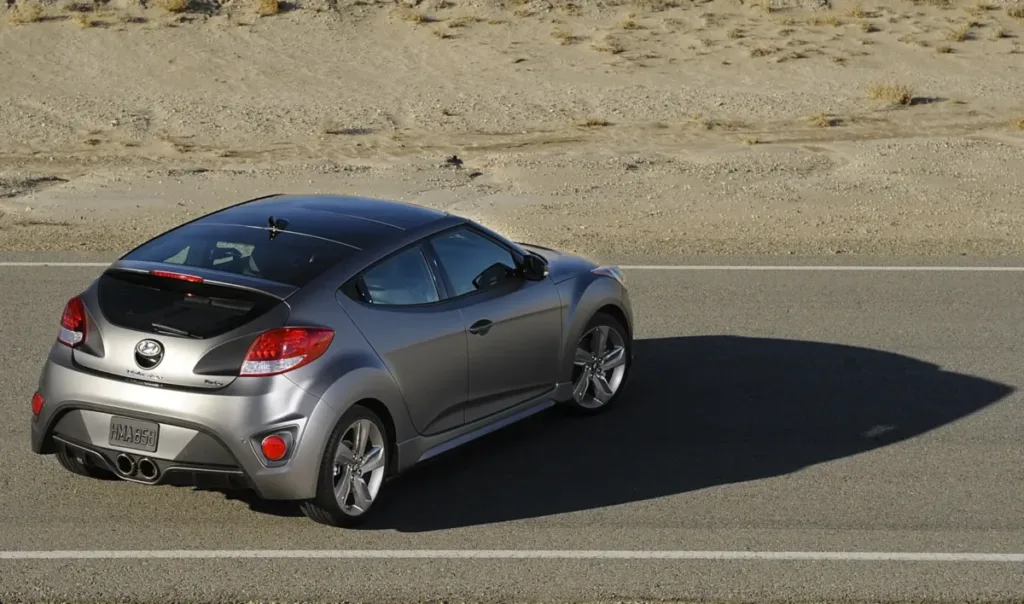
Hyundai Veloster
- 2,621 lbs
The Veloster’s distinctive three-door design blends the practicality of a hatchback with the fun-to-drive spirit of a coupe. While its firm ride may not be for everyone, its peppy performance, especially in turbocharged models, makes it a compelling choice for those seeking something entertaining and unique.
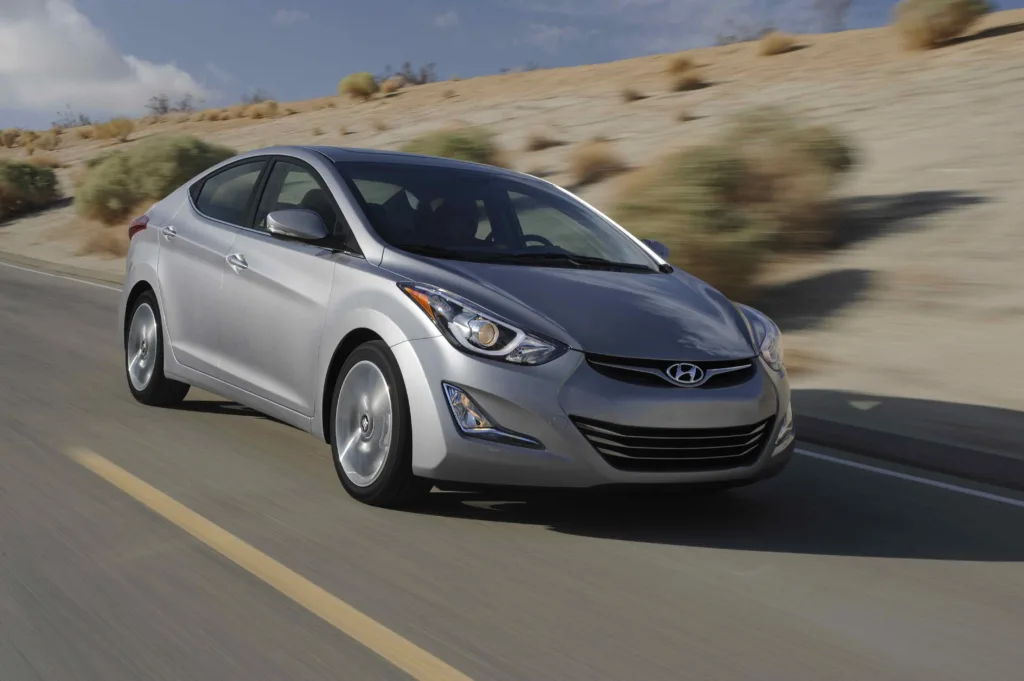
Hyundai Elantra
- 2,693 lbs
The Elantra delivers an appealing combination of upscale design and generous features, and its relatively light weight helps it achieve solid fuel efficiency. It’s a go-to for those seeking a stylish yet practical compact sedan, though it’s more about comfort than sportiness.
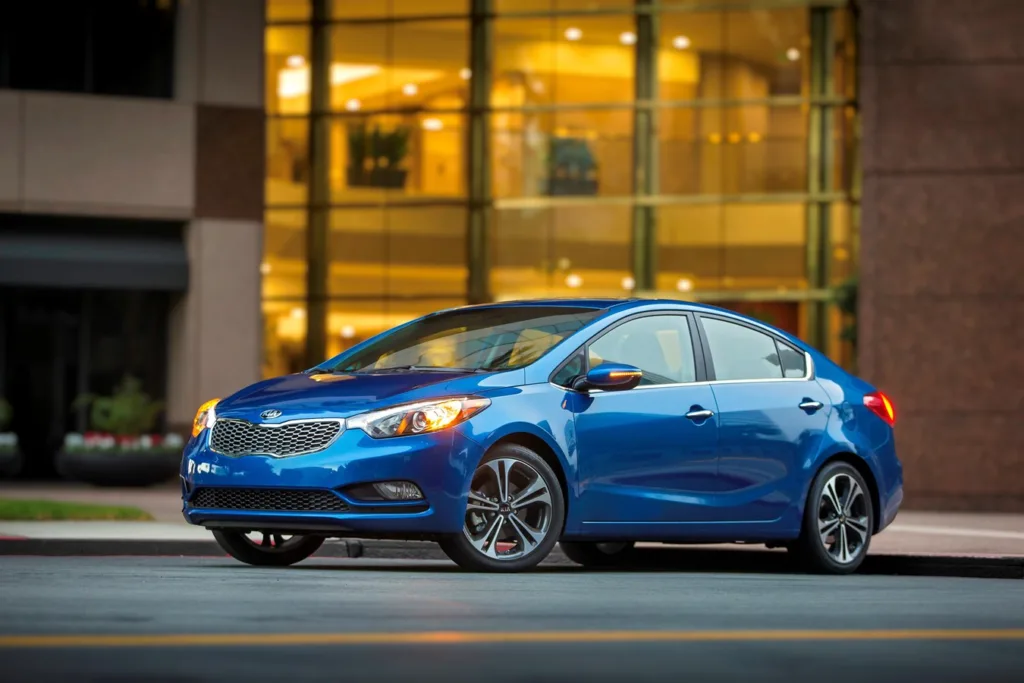
Kia Forte
- 2,751 lbs
The Forte’s niche is value. It offers a plethora of features and practicality without a hefty price tag. However, it falls short of class leaders like the Honda Civic when it comes to driving dynamics.
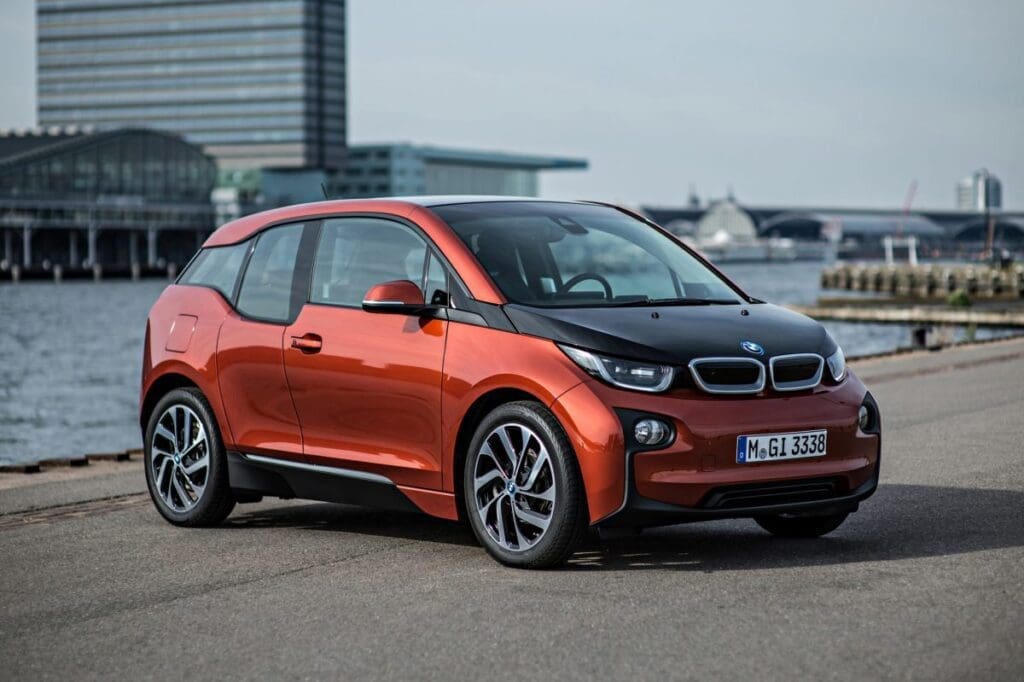
Honorable Mention: BMW i3
- 2,767 lbs
The i3 deserves a special mention in the compact segment. Despite its battery power — typically far heavier than internal combustion — it stays svelte thanks to an innovative carbon fiber reinforced plastic (CFRP) structure. While the i3 also upholds BMW’s reputation for driving engagement, its limited range and polarizing design might not suit everyone.
Midsize Sedans
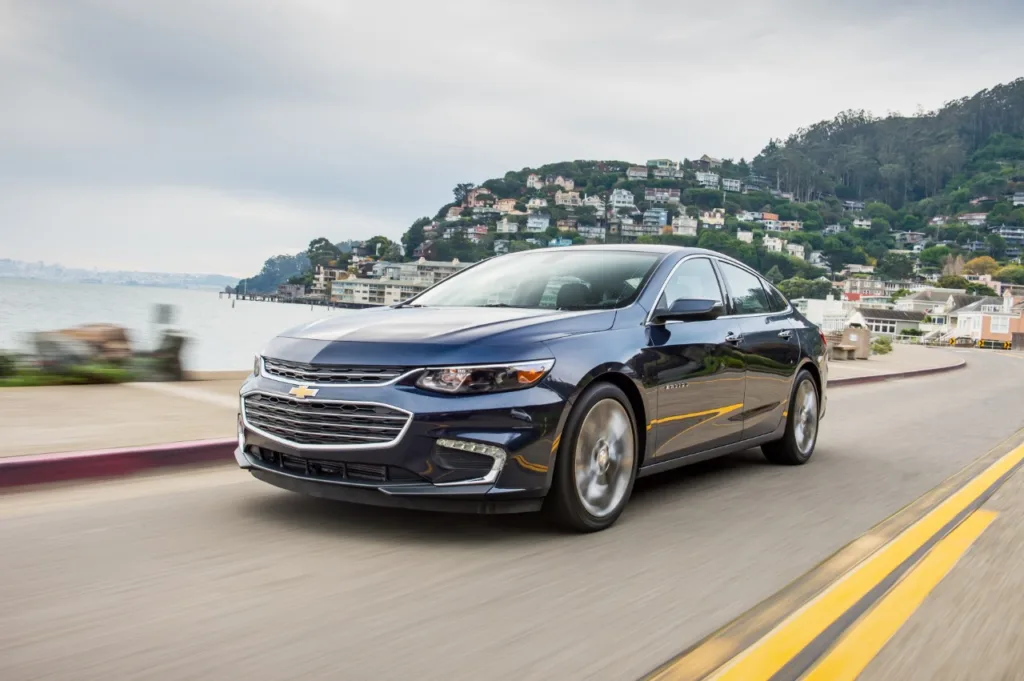
Chevrolet Malibu
- 3,152 lbs
The Malibu is the lightest offering in the midsize class. Without too much extra mass to move around, it deftly balances comfort and efficiency. However, some find its interior a bit spartan compared to more upscale rivals such as the Honda Accord.
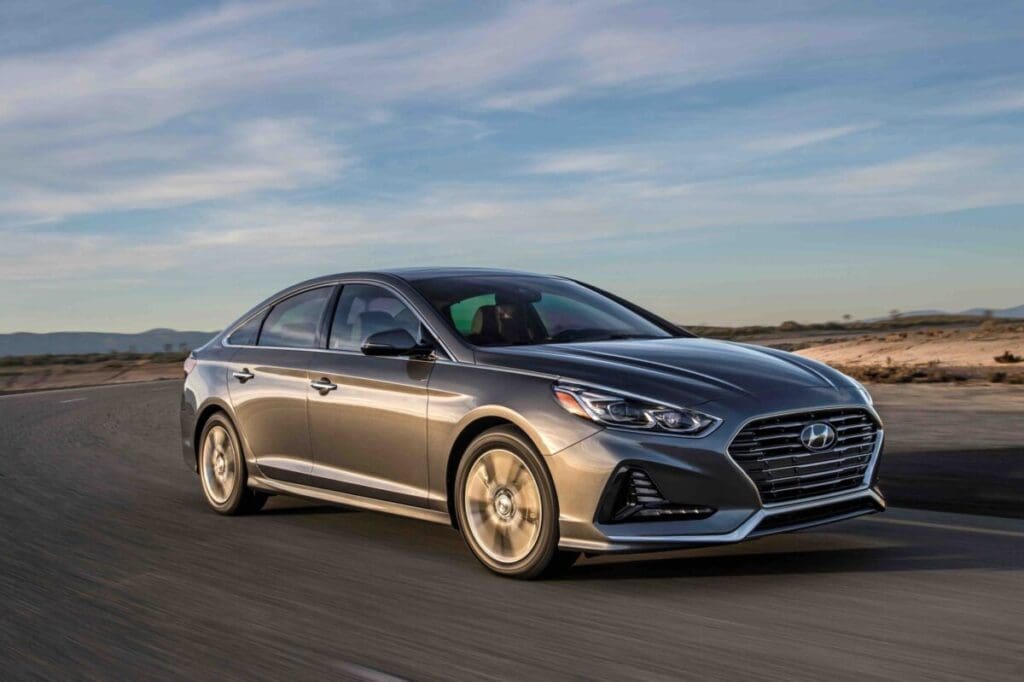
Hyundai Sonata
- 3,161 lbs
The Sonata stands out with its eye-catching design and spacious, well-appointed interior. Its relatively light weight also helps it achieve a comfortable and quiet ride. But some owners note that it lacks much in the way of sportiness behind the wheel.
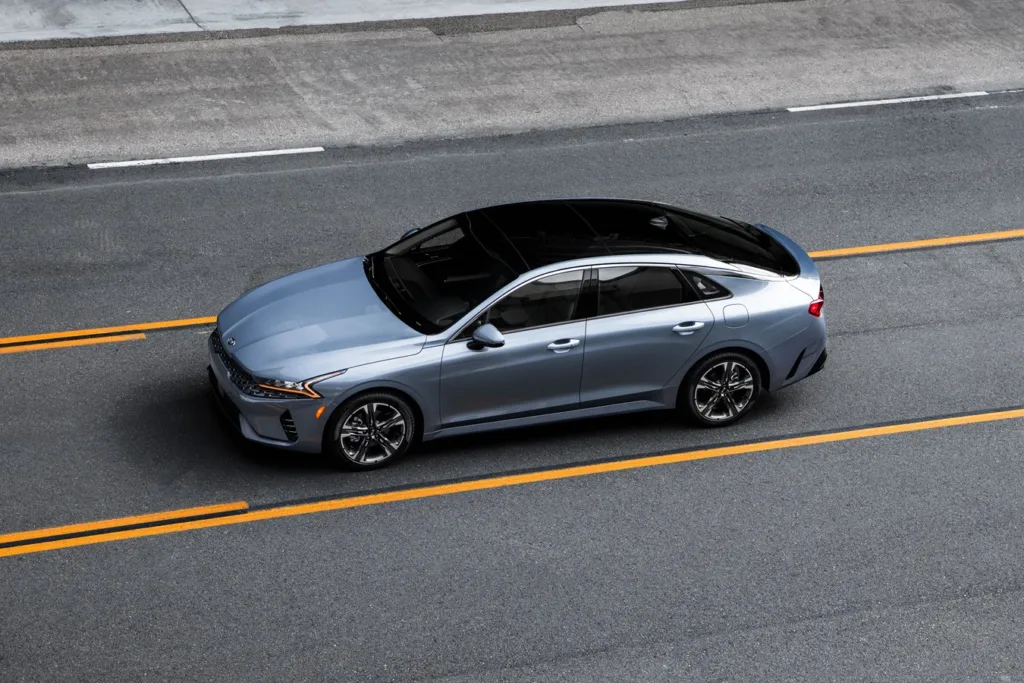
Kia K5
- 3,180 lbs
The K5’s tidy weight contributes to its notable agility and fuel efficiency. The midsize Kia also impresses with a modern design and up-to-date tech. On the downside, its ride may be stiffer than some prefer.
Large Sedans
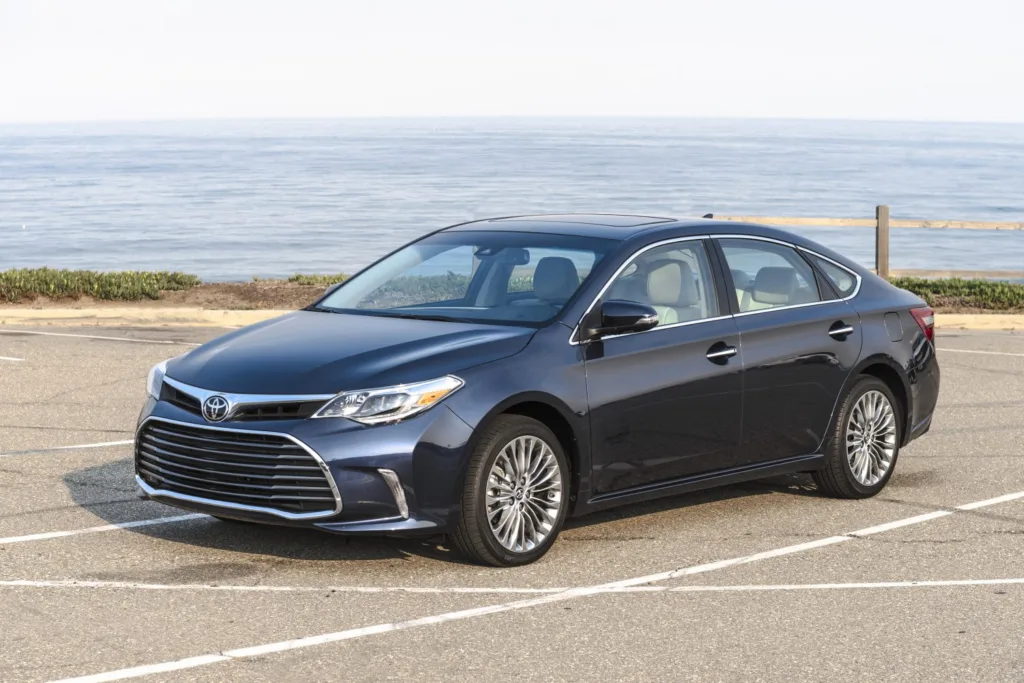
Toyota Avalon
- 3,485 lbs
The Avalon is the lightest choice among full-size sedans, but that doesn’t hinder its roominess or refinement. Owners also appreciate its ample features. However, some note that the driving experience, while smooth, is not particularly sporty. Also, its price point tends to be higher than others in the segment.
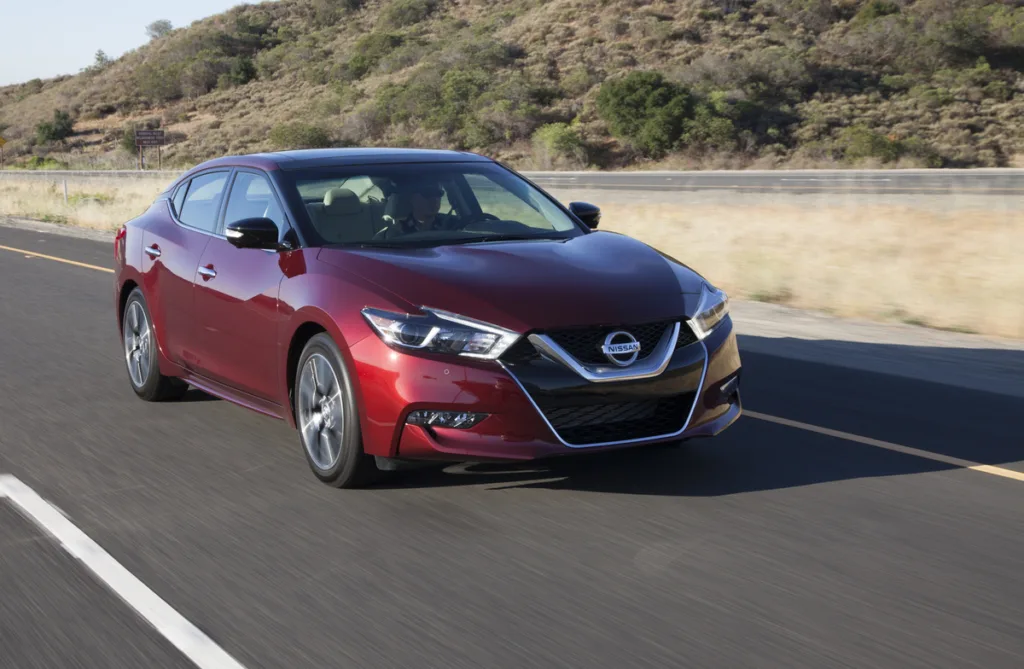
Nissan Maxima
- 3,515 lbs
With a driver-oriented cockpit and standard V6, the Maxima brings a sportier edge to the large sedan category. Its performance is no doubt helped by its lack of excess mass. On the flip side, some owners point out that its athletic nature comes with a firmer ride, and the interior, while premium, offers less room than some rivals.
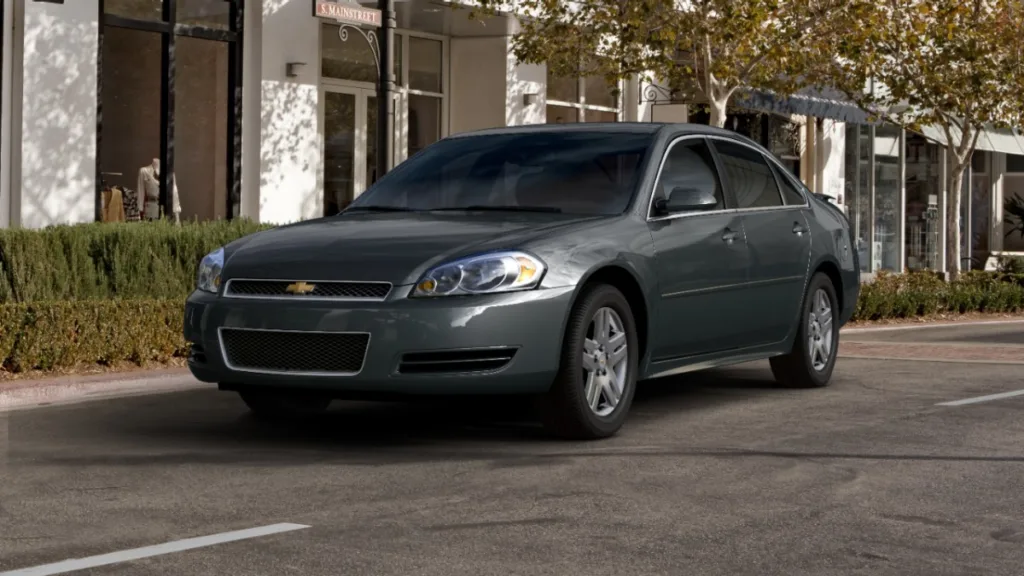
Chevrolet Impala
- 3,574 lbs
The Impala is a classic name in large sedans, offering a roomy cabin, ample trunk space, and a smooth, quiet ride. Thanks to its relatively low mass, it accomplishes all this without guzzling gas. Long-term owners also praise its reliability, though some wish for more advanced features in the base model.
The Bottom Line
From the urban agility of small cars like the Smart Fortwo to the balanced performance of the midsize Chevrolet Malibu, the benefits of a lighter vehicle are clear. Large sedans like the Toyota Avalon show that spaciousness and comfort can coexist with lighter builds. At the same time, sports cars like the Mazda MX-5 Miata prove that lightness can be synonymous with raw and exhilarating performance.
In the world of automobiles, less really can be more — more efficient, more agile, and often, more fun.
Photos courtesy of Alfa Romeo, BMW, Chevrolet, Hyundai, Kia, Mazda, Mitsubishi, Nissan, Porsche, Mercedes-Benz, Subaru, and Toyota